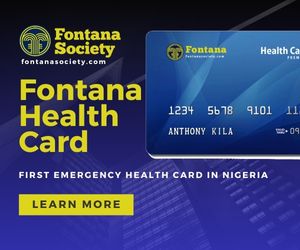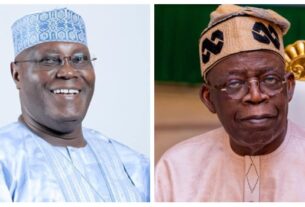by Austin J. Otah
I write from a diasporean perspective.
I cannot pretend I have not had my mindset, expectations, opinions et al affected by my sojourn outside the confines of our Motherland and it is from this angle that I express my views on various topics that come to mind. I do not follow a rulebook as I agree with Douglas Bader that rules are for fools and guidance to the wise. From my rather diasporic stables, I will look at topics, hopefully from a uniquely refreshing angle that ultimately and completely is my opinion but with enough persuasive bent to get the reader to think again so ‘let’s talk about…’
‘Corruption’ has been making the waves in Nigeria in the past few months or even the last year or two, hasn’t it? It even got to a height during the tenure of President [Jonathan] who felt the need to address the issue but in doing so, famously courted controversy by suggesting that stealing is not corruption. He actually said in October 2013:
”What many Nigerians refer to as corruption is actually stealing. Stealing is not the same thing as corruption.”
A lawyer’s definition of ‘corruption’ would be “an act done with an intent to give some advantage inconsistent with official duty and the rights of others. The act of an official or fiduciary person who unlawfully and wrongfully uses his station or character to procure some benefit for himself or for another person, contrary to duty and the rights of others.” So to some extent, Jonathan is correct, as stealing is only a fruit of corruption and not fulsomely corruption as a whole.
Corruption has always been in the mindset of the Nigerian Citizen. Even as a pupil in the ‘70s, I remember big colourful posters in my school, warning against ‘bribery and corruption’, intimating that both the giver and receiver were guilty so it has always been in the psyche of the Nigerian I would like to think. Of course with the advent of the 2nd Republic, Army ‘occupations’ or perhaps, preoccupations, temporal mini-administrations before the advent of the 3rd Republic, I have seen the rise in corruption indices from just a figment of my innocent and naïve imagination, in which I promised myself never to commit these ‘crimes against humanity’’ to the ravenous monster that it has become in these economically inclement times.
International measurement indexes such as the Global Corruption Barometer 2006 created by Tom Lavers formerly of Transparency International, which took a survey of people in 62 Countries concerning their relationship with public officers in their various Countries showed that corruption was highest in Africa. The Corruption Perceptions Index 2006 created by Johann Lambsdorff, a professor and consultant with Transparency International, ranked Nigeria 145th out of 180 Countries in the ‘highly corrupt’ category in January 2024.
That the moniker known as corruption has pervaded practically every sector of our Society especially the three arms of Government is a very open secret. The Executive, Legislature and Judiciary are having to deal with real and pressing issues concerning corruption. As they say, ‘so goes the head, so goes the body’. You can hardly expect to be given service these days without the person offering that service for which they are paid, such as a security officer ushering you into a venue, not expecting ‘thanks’ in monetary form. It has almost become a ‘lifestyle’. Whether this should also be added to the corruption matrix is debatable since we do not have a formal welfare system to look after the indigent as such but that is an argument for future debate.
Nigeria is fighting back, manfully. She has created certain corruption Czars to police and curtail the corruption traffic. She has variously created bodies such as the EFCC [Economic and Financial Crimes Commission], the ICPC [Independent Corrupt Practices and other Related Offences Commission], the NDLEA [National Drugs and Law Enforcement Agency], and CCB [Code of Conduct Bureau] but amid varying seeming successes, the results from these bodies have been generally muted. There are various arguments for this, such as that the Government of the day tends to hijack them, like Napoleon did with his bulldogs in that halcyon tale of old, Animal Farm; and wield these bodies like a sledgehammer against those the Government of the day wishes to make an example of. Of course, there is also the interesting argument that the same viral infection that had slipped into the Society’s bloodstream had also infected these bodies thereby rendering them mostly ineffective.
So, rather than belabouring the point about corruption and its horrific consequences on the fortunes of our dear Nigeria, the Augean question on my mind is how we can ensure that these bodies, created to fight corruption, are monitored themselves to ensure that they are effective and actually drive down the corruption trend in the Country. I call these bodies the Czars sent to police the corruption czars – the indubitably corrupt and to cleanse our Society of its heinous reek.
It is my humble opinion that we should have a Public Ombudsman set up to monitor these bodies to ensure their effectiveness in a sort of ‘checks and balances’ scenario. An ombudsman may be described as ‘an official appointed to investigate individuals’ complaints against a company or organization, especially a public authority’. In Nigeria the closest we have to a public ombudsman is the Public Complaints Commission [PCC], which was created in 1975 with a Mission:
“to promote an effective and efficient service that is responsible and responsive to the needs of the citizenry through investigation and resolution of complaints against Federal, State, Local Government, Public Corporations and private sector organisations and their officials”.
Ordinarily, this should include our corruption tackling bodies but I am yet to hear of one complaint brought to the PCC against them. The corruption Czars have a peculiar air of independence and self-importance with an aura of awe that the thought of having them policed is almost taboo, an anathema. A frivolous ‘misthought’ [my coination] that must be immediately dismissed! Sometimes I wonder if the legislative drafters of both the PCC and EFCC, IPCP, NDLEA and other similar bodies had each other in mind! On paper it would be so assumed but in practice, this is hardly the case. The SCUML [‘Special Control Unit Against Money Laundering] set up in 2005 whose objectives are amongst others is to remedy identified inadequacies of money laundering and financial transactions legislations would in my view have been perfect for this assignment if it was given ombudsman-like powers but it works only in collaboration with bodies like the EFCC and NFIU [‘Nigerian Financial Intelligence Unit’] and does not monitor their activities.
It is my humble yet insistent view that a new Ombudsman should be created with similar powers like the PCC and specialist competencies like the SCUML to look into the affairs of these Czars. The PCC’s jurisdiction is quite wide and sometimes too wide. In the absence of this new Ombudsman, it may be that the PCC itself should create a specialist task force department designed to dealing with the monitoring of these bodies created specifically to tackle corruption in its various forms. It should not just wait for complaints to be brought; it should actively investigate the manner in which these bodies are run and so in effect police the corruption Czars. Let’s talk about…
AUSTIN J OTAH, ESQ.






